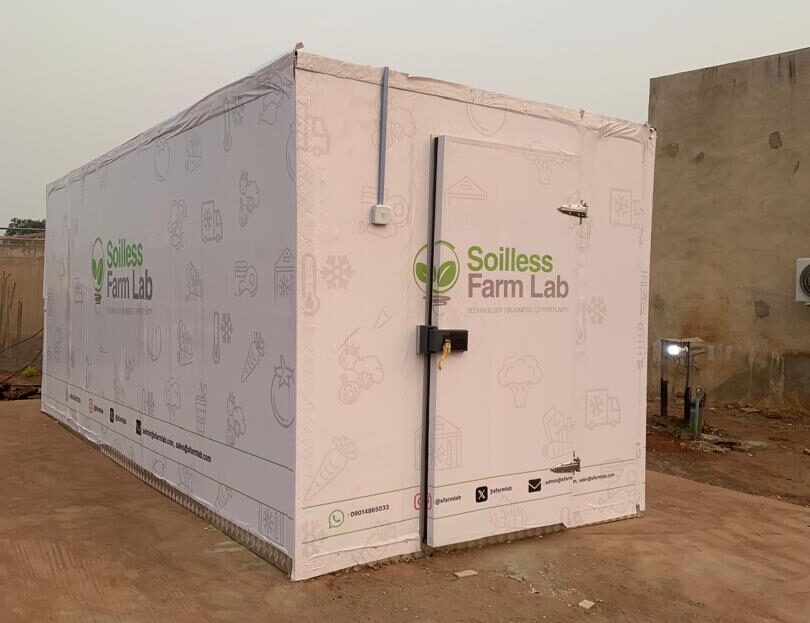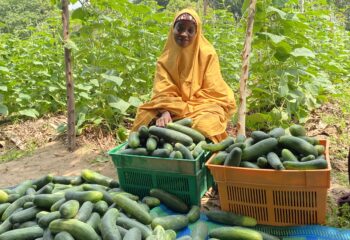
In Nigeria’s horticulture sector, small- and medium-sized enterprises (SMEs) are critical drivers of innovation. Yet without access to strategic markets and infrastructure, many operate far below their potential.
This was the challenge for Ecotutu, a Lagos-based company founded in 2017. Focused on reducing post-harvest losses through solar-powered cold storage, Ecotutu began offering eco-friendly cooling solutions. However, the company struggled to break into critical markets due to space constraints and limited connections.
Things started to change in 2022, when Ecotutu participated in a business linkage event organized by the HortiNigeria program in Ogun State. The event brought together producers, traders, input suppliers, and innovators to facilitate partnerships.
Ecotutu CEO Babajide Oluwase directly engaged with stakeholders from the Mile 12 International Market, Africa’s largest fresh produce hub, advocating for sustainable storage solutions that could reduce waste and protect market traders’ income.
“There is a great opportunity for businesses like ours within the market, as many sellers experience losses due to the perishability of their goods.”
Babajide Oluwase, CEO of Ecotutu
Shortly after, Ecotutu secured space to install a 10 metric ton solar-powered cold room at Mile 12. This marked the company’s entry into a high-demand market and laid the groundwork for broader expansion.
With continued support from HortiNigeria, Ecotutu took its vision even further in 2023 and 2024, collaborating with two of the program’s business champions to install two 30 metric ton cold storage facilities in Ogun and Oyo states. The first was set up at Soilless Farm Lab, also known as Eupepsia Place Limited, in Awowo and the second at the National Horticultural Research Institute (NIHORT) in Ibadan.
These installations are more convenient as they are closer to farmers’ production sites, helping them reduce spoilage, stabilize income, and gain stronger control over market timing. With these storage facilities, farmers and aggregators can now manage surpluses more strategically and respond to price shifts without compromising product quality.
“There is a great opportunity for businesses like ours within the market, as many sellers experience losses due to the perishability of their goods,” said Oluwase.
The partnerships facilitated by HortiNigeria have allowed Ecotutu to:
- Extend access to clean, renewable energy-based storage for rural and peri-urban farmers.
- Support smallholder profitability through extended shelf life and minimized spoilage.
- Strengthen youth-led agribusiness ecosystems in Ogun State through collaboration with local champions.
Ecotutu’s journey is a powerful example of how innovation, coupled with the right partnerships, can scale sustainability. From market linkages to infrastructure rollout, Ecotutu is changing the narrative of access to cold storage facilities in Nigeria’s horticulture sector.
Looking ahead, the plan is to continue expanding the cold storage network in collaboration with other private sector actors, ensuring that climate-smart technologies become a standard feature in Nigeria’s agricultural landscape.
The HortiNigeria program (2021-2025), funded by the Embassy of the Kingdom of the Netherlands in Nigeria, aims to facilitate the development of a sustainable and inclusive horticulture sector that contributes to food and nutrition security in Nigeria. HortiNigeria is led by IFDC and implemented together with KIT Institute, Wageningen University and Research, and East-West Seed Knowledge Transfer Foundation.





